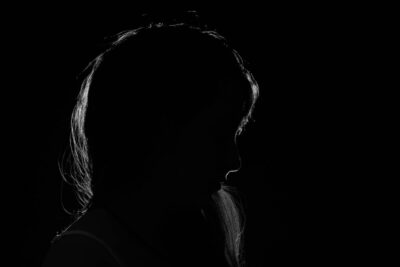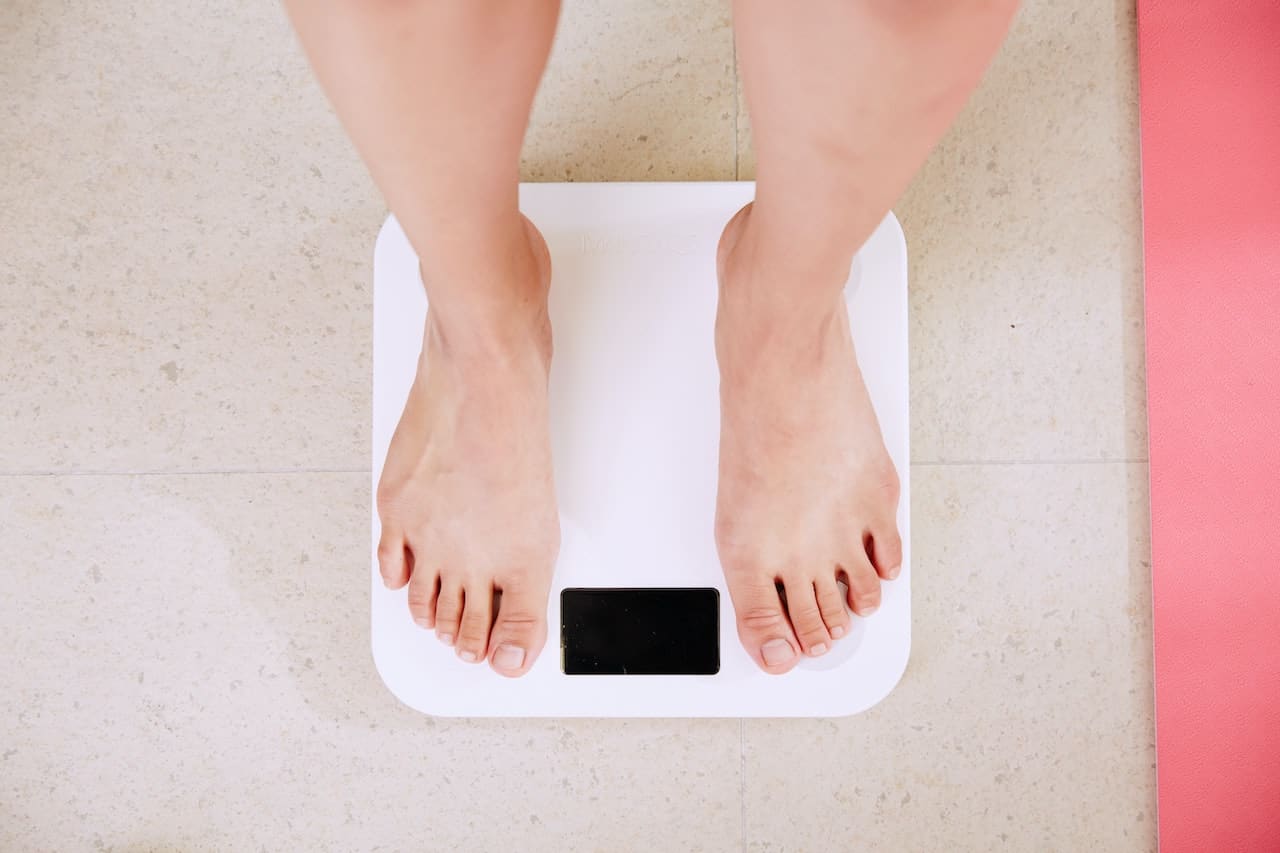My mom and I stood in her kitchen one day last summer, overlooking the cove that was dotted with a dozen colourful boats at their moorings, and found ourselves chatting about body image. As I chopped the potatoes for dinner I tell her how self-conscious I am about my legs. There’s the awkward purple birthmark that stretches up the side of the left one, and my thick ankles just like Nana’s. I tell her how the summer awakens a self-loathing that surprises me sometimes with its intensity, its harshness, and admit that it is an inner battle every day to pull on shorts and wear them in public. There have been many gorgeous summer days that I’ve lost this battle and spent the afternoon at the park with my boys wearing pants.
Mom’s knee-jerk response is astonishment. In her eyes I am thin and beautiful, things she has struggled to feel since having children (three in total — twins a mere eighteen months after her first) and she can’t understand in the least why I might struggle with my self-confidence. She has often said to me, in a breath of both regret and relief, “I’m so glad you and your sister haven’t had trouble with weight like your dad and I.” In her mind, we had nothing to worry about. We were protected by nature’s gift to us — a slender figure and beautiful hair.
She doesn’t give me advice, or the shower of affirmations that perhaps I secretly hope for. Instead, she confesses her own struggle. “Sometimes I lay in bed at night wondering why I am still overweight, so ashamed that I still look like this. Asking myself why I just can’t get it under control.”

My heart drops as she says this — I had no idea. That after all these years thoughts about her body were still keeping her up at night? Wasn’t age supposed to free us from this self-consciousness? I want to hug her, tell her she’s beautiful and wonderful and radiant. Another thought concerns me — will these thoughts still be haunting me in thirty years??
Weight has been a stumbling block for mom for as long as I can remember. The image of her sitting at the table with a tiny coiled notebook open in front of her, adding up her Weight Watchers points for the day in bright blue ink, is as familiar to me as her reading me a bedtime story. A photo of her stayed tucked into the corner of her dresser mirror for years and I would look at it each time I rummaged through her wooden jewellery box trying on her clip-on earrings. The picture was of her standing on a beach, wearing a plaid shirt and beige capris, and she’s smiling at the camera. My mom placed this picture on her dresser mirror not because it was a memory she wanted to hold onto, but because at the time the picture was taken she was at her heaviest weight. It was supposed to be her motivation, a daily reminder, don’t let yourself become this again.
Mom was very careful about what she said about weight around my twin sister and I. I have no memories of her berating herself or her body. In fact, quite the opposite. I remember how we would pull her away from the stove where she stirred the beef stroganoff, lift the bottom of her shirt, and start squishing the soft flesh of her belly with our hands, giggling at how it felt just like bread dough. I still can’t believe she let us do this to her. But it made her tilt her head back and laugh, a really loud, joyous kind of laugh that still rings in my ears, and maybe that’s why we kept at it. What child doesn’t love the sound of her mother’s happiness bubbling up to the surface?
And yet, like so many girls do, I entered a stage in adolescence when the issue of weight became apparent to me. My sister and I, both as thin as rakes, started using the phrase “I feel fat”, and it became such a common occurrence that mom went out and found a book with that exact title — Mom, I Feel Fat by Sharon Hersh.

I remember being fourteen and discovering it for the first time on our basement bookshelf, tucked between the Narnia Chronicles and a Webster’s thesaurus, feeling slightly embarrassed and angered that mom was doing this parenting research behind our backs. The image on the front cover depicted the ideal mother-daughter duo — a pretty mom in an oversized sweatshirt leaning casually on her daughter’s knee. They looked so close and intimate, like they were best friends, like they shared each other’s clothes and talked about anything and everything together. Nothing about them reminded me of mom and I. I barely summoned up the courage to tell her I had started my period. Vulnerability, even with mom, was not my strong suit.
But she was our biggest fan. And I’ve always wondered why, in a home with so much unconditional love and support, I would have struggled with my self-esteem at all. There was no shortage of compliments and praise — if anything I should have left with an inflated ego. This makes me think body image issues run much deeper, like a code written into your DNA, passed from one generation to the next. Like tentacles that have wound themselves tightly around your thoughts, becoming very difficult to pry off.
While my mother always struggled on the other side of weight, carrying around pounds she didn’t want, I lived in reverse. I have exercised to the extreme, forced my body into a size it was not meant to be, and prided myself on its smallness. But what we both have in common, as I am starting to see, is the lack of trust in our bodies, the lack of self-love and self-acceptance.
I am still trying to break my habit of stepping on the scale every day, of body checking and comparing. I’m still learning how to enjoy eating a second slice of pizza without guilt or shame. And mom is on her own journey, trying to eat in a balanced way and give her body the love it deserves, regardless of the number on the scale.

Current studies indicate that only one in five women are satisfied with their body. With that number, it seems almost impossible to grow up with a healthy body image — the odds are stacked quite high against us. So now, here we are, my mom in her early sixties and me in my mid-thirties, both trying to feel at home in our bodies, both wanting to be at our best, expecting more from ourselves, and also striving to appreciate and accept our bodies for what they are right now.
Our story is not unique. This is the story of women, of mothers and daughters and body image and trying to break the cycle of body dissatisfaction and the pursuit of thinness and replace it with a more positive and loving view of ourselves. It is up to each of us to start changing the conversation, to shift the focus from body preoccupation to all the other wonderful things we can pursue and grow in our lives — creativity, strength, compassion, joy.
As I often do, I look to my sons for clues of the best way forward. I hope they hold onto the innocence they have right now, at ages six and eight, where their bodies are strong and full of life, letting them run and skate and climb and swim. They are my constant inspiration, to see my body as a thing to be celebrated. A gift that helps me do all the things I love to do. They don’t waste time wondering if their bodies are good enough, they are too busy living in them. And we should be, too.



 Follow Us On Instagram
Follow Us On Instagram
